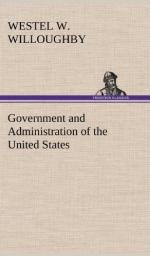The people in Massachusetts were in insurrection. The French minister wrote to his country: “There is now no general government in America—no head, no Congress, no administrative departments.”
For all these evils the limited and imperfect powers conferred upon the Federal Government by the articles of Confederation afforded no adequate remedy. Even the Constitutional Congress was now in danger of breaking up. States, to save expense, neglected to send delegates, and repeated appeals had to be made to get representation from nine States so as to pass important measures. A better union was seen by all thoughtful citizens to be necessary, but very difficult to obtain, owing to inter-state differences. The idea of having a convention separate from the Congress, whose work should be the framing of a stronger government, gradually gained ground.
The Constitutional Convention was obtained in a roundabout way, and only after repeated failures. The first attempt to obtain an assembly of representatives was made at Annapolis, Maryland. Only five States sent representatives, and the convention accordingly adjourned to Philadelphia, where in May, 1778, delegates from all the States, except Rhode Island, finally assembled.
CHAPTER VI.
Adoption of the Constitution.
_#The Constitutional Convention.#_—Fifty-five delegates were present. With scarcely an exception they were all clearheaded, able, and moderate men. Virginia sent Washington, Madison, Edmund Randolph; Pennsylvania sent Benjamin Franklin, Robert Morris, and James Wilson; New York sent Alexander Hamilton; New Jersey, Patterson; and South Carolina, the two Pinckneys. Washington was chosen President of the Convention. Two rules were adopted: 1st, proceedings were to be secret, and 2d, one vote was to be given to each State, thus making it of no importance whether a State had a large or small delegation.




